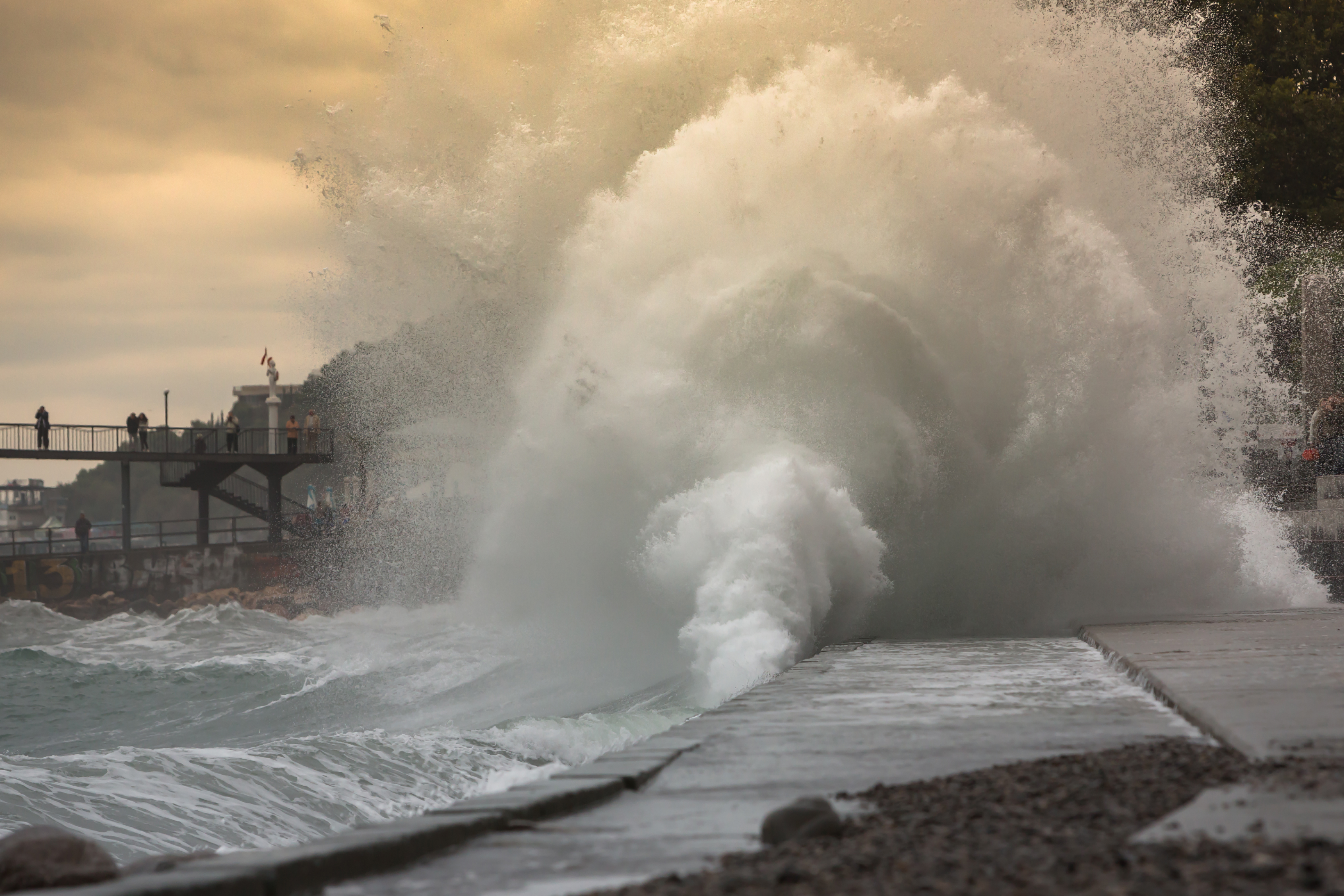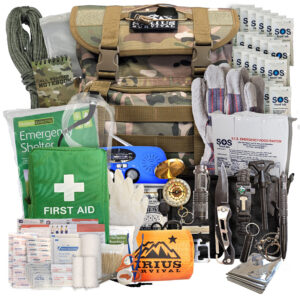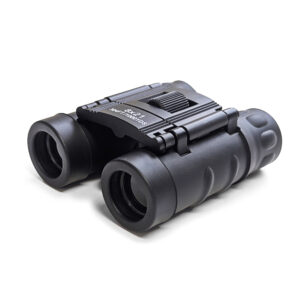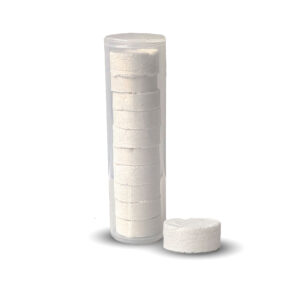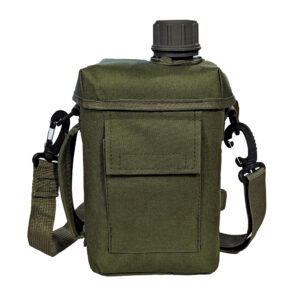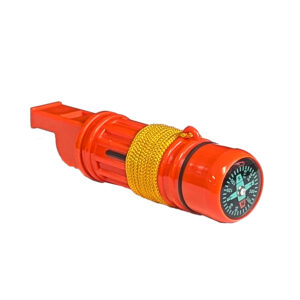Here in the United States, hurricane season is typically between June and November. We are right in the middle of those months right now. Are you prepared if a hurricane occurs? Hurricanes can cause millions of dollars in damage. Although we do not necessarily experience a severe hurricane each year it is always a possibility.
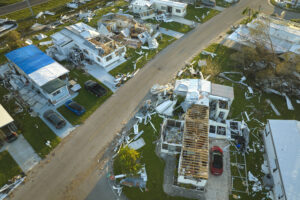
What Are They?
Hurricanes are classified as such when there are low pressure and rotation and the incident of a thunderstorm. Hurricanes are broken up into several categories, or classes, depending on their wind speed. The least severe, class 1, must have a wind speed of at least 74 mph and no higher than 95 mph. To even be considered a hurricane, as opposed to just a storm, the wind speed needs to hit at least 75. If it crosses over that 95 mph mark then it has moved into a category 2 hurricane. As the wind speeds go up the more severe and dangerous the hurricane is. Category 3 and above is considered a major storm. Category 3 has a minimum wind speed of 111 mph.
Hurricanes are a type of tropical cyclone that is accompanied by not only intense winds, but also torrential downpour, storm surges, and even flooding. These storms originate over a warm body of water and begin to pick up speed as it closes in on land. When warm and cool air collide it can cause circular airflow. Depending on what side of the equator the storm originates on the hurricane will be spinning either clockwise or counterclockwise. When these storms gain speed and increases coverage is when it becomes dangerous.
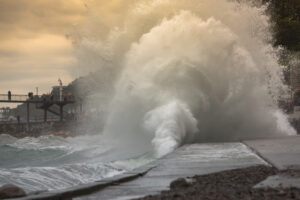
When hurricanes do hit land they tend to slow down. This is because they are no longer gathering energy from the water and open space. Once these storms hit land there are other obstacles in the way to slow the storm down.
Let’s talk about how to prepare for a hurricane, what to do if you find yourself in one, and what to do after it has passed.
Before The Storm
If you receive news or a warning that a hurricane is headed in your direction you should not panic. Have your plan already in place. You should already know what needs to be done and when/how to do it. First and foremost you will need to secure your property. Whether you decide to ride out the storm or go somewhere and wait until it passes you will want to be sure your personal belongings and your home are kept safe. If you know you live in a part of the country that is prone to experiencing hurricanes then you should already have supplies on hand.
Storm shudders are great to have. If you do not have official storm shudders you can use 5/8 marine plywood. Be aware that tape will not help to secure windows. You will really need to be sure you are securely fastening something over your windows, such as the shutters or plywood, to ensure that the glass does not break from the impact of any debris or precipitation. You should also prepare your roof by installing or fastening any straps. This can help limit roof damage.
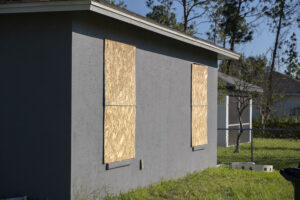
Prepare the outside of your home by cutting down any excess tree limbs or branches. Old, dead, decaying, or excessively large, branches may be broken during the storm. To avoid damage to your property or house you will want to keep these branches trimmed so that if any do fall it will not lead to the destruction of your property or home.
Take down any umbrellas, awnings, or other outdoor furniture. These can be moved by the strong winds and could cause damage to your house or property. Remove any items that are outside the home but shouldn’t be, such as garbage cans, bicycles, or grills. If you can move it then so can the wind.
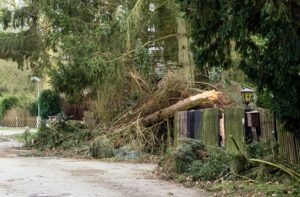
Once you clear these items you will also want to be careful about where you are placing them. Be sure you are not indirectly causing flooding by building up barriers around your home. On this same idea, you should also clear your gutters and any clogged drains. The rain will definitely need to be able to flow freely through these and flooding will be more likely if you have not cleared them out.
Inside the home, there are also steps you should take to ensure that you are doing whatever you can to keep your valuables safe. You should know ahead of time of the items that are the most important to you. Family photo albums, irreplaceable keepsakes, etc. should be put onto the highest floor. Place them on a shelf to help protect them. Items in basements should be raised off of the floor if possible. Unplug any electronics as well.
Be sure to check out your cleaning supplies. Be sure they are on a shelf and the caps are nice and tight. If chemicals end up in the flood water it can be very dangerous.
What Should I Pack?
If you’re a survivalist or have been reading our blogs then you know how important it is to have a bag packed in case of an emergency. A bug out bag is something you should really have ready just in case. In this bag, you will keep a small supply of non-perishable foods. For every person in your family make sure you have enough food to help you get through several days. You should also have water, preferably in bottles, because you never know if you will have access to fresh water. You will also want a change of clothes and specifically, in your hurricane emergency bag, you’ll want some items to help you stay dry. Ponchos are perfect for this. If you’re a true survivalist then I know that you already have your emergency bag packed and ready to go.
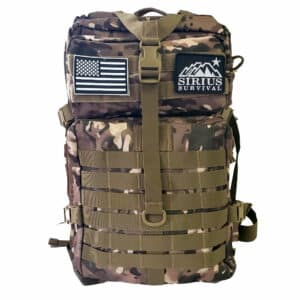
You will want to have food, water, and some emergency tools in case you are forced to flee your home. You will also want items that will help in case the electricity goes out. Having batteries, flashlights, and at least one multi-tool is necessary for this bag.
You should also be sure to grab any important documents that you prepared ahead of time. Copies of birth certificates, licenses, insurance information, etc. should be kept in a safe place. They can either be laminated or can be stored in a watertight container. This will prevent them from being damaged or ruined in the rain or floods. If you do need to evacuate your home you will want to be sure that these are items that you have with you.
If you or any of your loved ones are on daily medication you should be sure that you have a filled script and that the medication is in an easily accessible place. If you have pets you need to be sure they are up to date on their vaccinations and have ID tags. You may not have a long time to decide if you are going to stay in your home or go elsewhere so having all of the necessary information ahead of time is truly important.
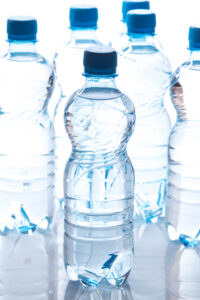
Plan out your escape route. If you are being encouraged or instructed to leave town then you better believe that driving will be a challenge. Have a place in mind that you can safely go and have a few different routes that you can take to get there. You may also want to pack additional bags in your vehicle in case you are traveling during the storm.
During The Storm
Once you know that a storm is headed your way and you have decided to remain in the home there are several things you need to do. (Please remember that if you are instructed to leave the area then you must obey). You’ve prepared the outside of the house as well as moved your valuables inside of the house. Your windows are secured and major electronics are unplugged. You must stay informed as well as have access to news stations. A portable radio is perfect for this.
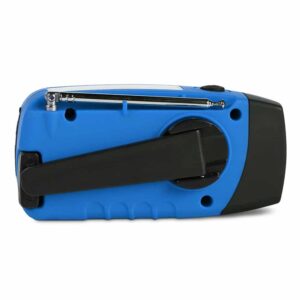
You might be encouraged, or directed, to turn off your utilities and you will need to know that information. If you are required to do so then turn your fridge and freezer to the coldest setting before unplugging and keep the doors shut. Turn off any propane tanks you may have and have your cellphone charger nearby and ready. If you are in fact instructed to turn off the electricity then you may benefit from a solar-powered battery pack. These packs can be charged either by an outlet or by solar power and by connecting it to your cell phone with a USB cord you will be able to charge your phone. Have these battery packs juiced up and ready to go.
Be sure to stay near your portable radio or television to be sure you are receiving accurate and up to date news.
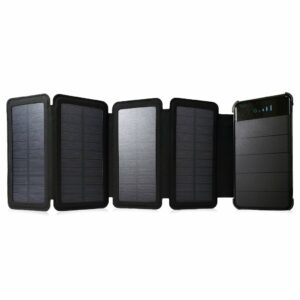
Once the storm begins you will want to stay away from doors and windows, even if they are shuttered. Stay as close to the center of the home as possible. As tempting as it may be to peek outside or film the storm, do not open the blinds or windows. Just because the wind has calmed down does not mean that the storm is over.
Find a safe space to go with your belongings like a closet or bathroom in the center of the house. Do not go into the attic or the basement. You may need to rise to higher ground if the floor you are on begins flooding.
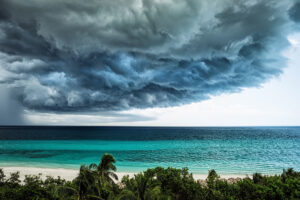
If there is damage being done to the outside of your house and it is now risking damage on the inside you’ll need to get to a safe location. If you can, lay down on the floor and cover yourself with a blanket or table. Protect yourself from debris. Set up a location ahead of time with your family. Every family member should know that if you get separated that everyone should meet in a predetermined location. Depending on the size of your home you may want to have more than 1 location in case one is inaccessible. Once you have chosen whether to stay or leave you cannot change your mind. Exiting the house and trying to flee the area in a vehicle while a storm is occurring is not a good idea. That situation can be especially dangerous.
After The Storm
Once you have heard that the storm has passed, and I mean from an official source not just by looking out the window, there are several steps to take. First and foremost your top priority should be safety. Are you with your family members? Do you know where your pets are? Do you have the items that are necessary for survival with you? Once you are able to answer yes to these questions then you may want to start reaching out to loved ones who are not in the home with you. This will depend on if there is cell phone service and if your mobile devices are working.
Do not turn on your electricity or plug in any electronics until you are instructed to do so. This can result in serious damages and dangerous situations. Be sure you are able to have access to a radio station or TV set to receive the updated information. If you are not sure if you should be taking certain steps then you should wait.
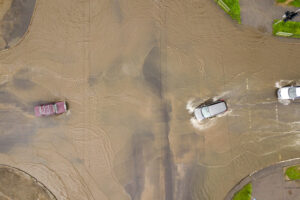
You should also be sure that if you do need to eat and drink that you are not drinking tap water. You will need to be consuming the bottled water instead. Drinking water that may be exposed to other chemicals and materials is not safe to ingest into the human body. If you need to be eating then be sure that the food you are consuming has not gone bad. Do not reach into the fridge and pull out food that has been without the cooler for over 40 hours. If you are unsure if something is safe to eat then you should throw it out.
If you are able to, you should start documenting the damage for your insurance company. You should also remove any water-damaged items and begin airing them out. Exposing items to the air quickly will help to prevent mold. You should also be sure that no matter what, you are not trying to go outside of the home. Driving a vehicle or walking immediately after a hurricane is extremely dangerous. Flooding can occur during a hurricane and the moving water from these floods is much more powerful than you’d think. In addition, you will not ever be sure if the water you are entering is electrically-charged. This can lead to electrocution. Flood water may also be contaminated with sewage, chemicals, and other harmful bacteria.
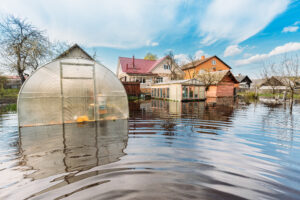
Of course, we hope that we never find ourselves in a natural disaster, especially a hurricane. But won’t it be nice to be prepared if you are? Having the information on how to stay safe and prepared during incidents like that can be a matter of life and death. Get started with your plans and prepping today. Even though the hurricane season comes to an end in the next several weeks doesn’t mean you shouldn’t always be prepared.
